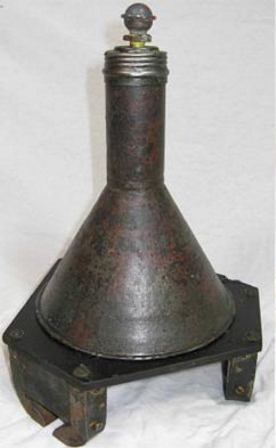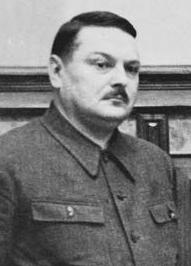Introduction
"I know that after my death, they will heap a pile of rubbish on my grave, but the wind of history will sooner or later sweep it away without mercy."
-Joseph Stalin (OTL)
"On one cloudy day on May 1942, a Red Army officer known as Polikov Shilo deserted to Nazi Germany. While the Germans had been reluctant to accept his services, Shilo showed the Germans his many war medals and claimed to have connections with the Red Army High Command. The leader the SS, Reichsführer Heinrich Himmler believed that Shilo could not be trusted, but Reinhard Heydrich, head of the Reich Security Office, reminded his superior of the lack of qualified recruits within the German espionage operations. This was due to the fact that most Soviet defectors were either illiterate countrymen or prisoners freed from labor camps who held conflicting ideological beliefs.
Shilo was eventually recruited in Operation Zeppelin, a massive plot to sabotage the Soviet war effort behind the frontlines. While the original plan was for Shilo to gather military intelligence from the Stavka, Heydrich had greater plans in mind. His plan being the assassination of Joseph Stalin. It was hoped that the assassination of Joseph Stalin would cause his underlings to fight for power, sending the Soviet Union into civil war. While the Red Army never fought amongst itself, Heydrich would at the least, create a political struggle within the Politburo.
The spy would assume the identity of Pyotr Ivanovich Tavrin, an injured Russian major. On the night of September 3rd, 1944, an Arado Ar 232B transport plane left Riga airfield and landed in the Moscow region. To maintain contact with the Nazi headquarters, Shilo's wife, Lidia Yakovlevna Shilova, would relay transmissions to her husband. During the operation, Shilio would be given a multitude of weapons to make his mission possible such as a miniature grenade launcher, a multitude of different handguns, and a radio-activated magnetic mine.
After assassin's plane landed in the woods, Shilo would make his way to Moscow his co-conspirator by his side. However, the transport would not complete its trip back to Germany as it was shot down by an anti-aircraft gun and crashed in the Kovalevsky forest, leaving no survivors. It was known that Stalin had become increasingly withdrawn throughout the war, so Shilio would bide his time before an opportunity to complete the plot took place. That opportunity would come on November 6, 1944, when the Leader of the Soviet Union made a grand speech to the Politburo on the October Revolution's 27th anniversary.
On 10:30 PM, an explosion shook the Senate, sending wooden shards and shrapnel flying across the room. NKGB agents investigated the scene and quickly found the culprit: a German-made explosive device placed beneath the podium. Shilo and Lidia attempted to flee Moscow in a motorcade but were quickly apprehended by security guards and later executed for conspiracy against the Soviet Union. Despite their best efforts, Stalin's doctors could not save him and declared their leader dead the following day, along with Chairman of the Presidium, Mikhail Kalilin. But within the Politburo, a different story began to take place. The Red Tsar who had slaughtered his enemies, real and imagined had finally passed away, with metal shrapnel stuck into his chest. Now that the people knew who had murdered him, a new question was asked by the Soviet Union. Who would become the next Stalin?"
-Spies and Lies: How Espionage Changed History, by Robert Harris

Shilo and Lidia

A replica of the Hafthohlladung anti-tank mine used to assassinate Stalin
Last edited:



